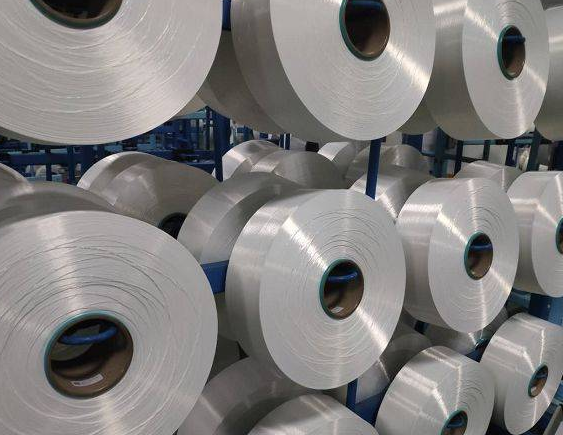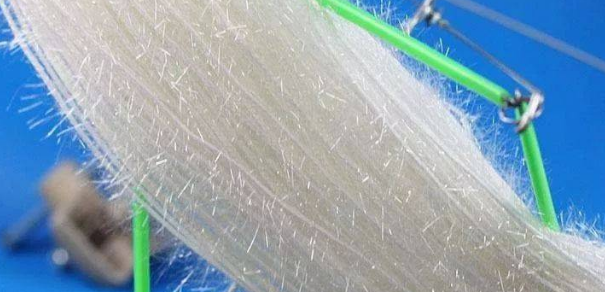Under the requirements of environmental policy, let's talk about textile recycled fibers
Polyester fiber accounts for about 70% of synthetic fibers, and the application of polyester in the bottle industry has expanded rapidly, so the recycled synthetic fiber is mainly recycled polyester fiber.
2. Recycled polyester fiber production technology
At present, recycled polyester raw materials mainly come from waste polyester bottle flakes, sheets, films, polyester blocks and waste silk in polyester polyester production.
The preparation method of recycled polyester fiber can be divided into physical method, chemical method and physical chemical method according to the regeneration principle.
Physical method
The physical method refers to the regeneration method of melt spinning directly after sorting, cleaning and drying waste polyester materials as raw materials.
Chemical method
Chemical method refers to the process of depolymerization of waste polyester material into polymerization monomer or polymerization intermediate by chemical reaction, and then regeneration polymerization and melt spinning after purification and separation. Chemical recovery technologies currently on the market include glycolysis, methanolysis and alkaline hydrolysis.
Physicochemical method
The physicochemical method is a recycled chemical fiber produced by grinding and cleaning polyester waste (waste bottle sheet) and increasing viscosity in the spinning process. Physicochemical method combines the advantages of physical method and chemical method.
Comparison of physical and chemical methods

Four, recycled polyester fiber and GRS certification
The end enterprise must have GRS certification for recycled polyester fiber. So what is GRS certification and what are the conditions required to obtain GRS certification?
1. What is GRS certification?
The so-called GRS certificate is the abbreviation of the global recycling standard for textile and apparel, and is the verification standard established for recycled fibers by the International Environmental Management Union Certification body (CU). In addition to regulating the source of raw materials, the verification standard also regulates the treatment of wastewater and the use of chemicals in the production process.
2. What are the GRS certification conditions?
GRS certification access conditions: the proportion of recycled ingredients of certified products is ≥20%;
GRS logo& Label use and special statement: The proportion of recycled cost of the production product is ≥50%
GRS application must meet the conditions:
If the company wants to apply for GRS certification, then the upstream supplier of recycled raw material should also have GRS certification. When conducting GRS certification of the Company, its supplier should provide GRS compliance certificate (scope certificate, referred to as SC) and transaction certificate (referred to as TC). Suppliers of reclaimed material at the source of the supply chain are required to provide Reclaimed Material Supplier Agreement and Reclaimed Material Declaration Form Declaration Form), on-site verification if necessary.
According to relevant information, Shenghong Group, Hengli Group, Shanghai Yuanfang Industry Co., LTD., Yizheng Zhongxing Environmental Protection Technology Co., LTD., Zhejiang Beaux New Materials Co., LTD., Zhejiang Haili Environmental Protection Technology Co., LTD., Ningbo Dafa Chemical Fiber Co., Ltd. and other enterprises have successively obtained GRS certification.
Fifth, recycled polyester fiber to help environmental protection
Recycled polyester fiber is a kind of recycled environmental protection fabric developed in response to the strategic development of the country to protect the environment. It has a wide range of uses, the use of recycled polyester fiber, can be made into a dress, a carpet, sofa, artificial lawn, geotextiles, filter materials, car parts and so on.
According to the data, every ton of recycled products recycled can reduce oil consumption by 6 tons and reduce carbon dioxide emissions by 3.2 tons, which is equivalent to the amount of carbon dioxide absorbed by 200 trees in a year. At the same time, the performance of recycled polyester fibers is comparable to that of native fibers, and some properties are even higher than that of native fibers (such as the resilience, smoothness, and looseness of recycled three-dimensional filling short fibers). Therefore, whether from carbon emissions, social responsibility, or resource investment, the importance of recycled polyester fiber for human beings is beyond doubt.

Six, the "more environmental protection, more fashion" of big brands
Plastic pollution has gained global resonance, and as governments around the world begin to formulate plastic waste policies, companies are also using environmental issues to try to improve their brand reputation in a competitive market.
No one can deny that the true stylish fashion attitude of the moment is to adhere to environmental protection. Now, environmental fashion is from Europe and the United States to the global popular, it brings not only beauty, but also a new, healthy outlook on life and fashion.
Adidas: Full use of recycled polyester in 2024!
ZARA: By 2025, all of the Group's brands, including Zara, Pull&Bear and Massimo Dutti, will use 100% sustainable fabrics.
- ABB
- General Electric
- EMERSON
- Honeywell
- HIMA
- ALSTOM
- Rolls-Royce
- MOTOROLA
- Rockwell
- Siemens
- Woodward
- YOKOGAWA
- FOXBORO
- KOLLMORGEN
- MOOG
- KB
- YAMAHA
- BENDER
- TEKTRONIX
- Westinghouse
- AMAT
- AB
- XYCOM
- Yaskawa
- B&R
- Schneider
- Kongsberg
- NI
- WATLOW
- ProSoft
- SEW
- ADVANCED
- Reliance
- TRICONEX
- METSO
- MAN
- Advantest
- STUDER
- KONGSBERG
- DANAHER MOTION
- Bently
- Galil
- EATON
- MOLEX
- DEIF
- B&W
- ZYGO
- Aerotech
- DANFOSS
- Beijer
- Moxa
- Rexroth
- Johnson
- WAGO
- TOSHIBA
- BMCM
- SMC
- HITACHI
- HIRSCHMANN
- Application field
- XP POWER
- CTI
- TRICON
- STOBER
- Thinklogical
- Horner Automation
- Meggitt
- Fanuc
- Baldor
- SHINKAWA
- Other Brands




































































































































